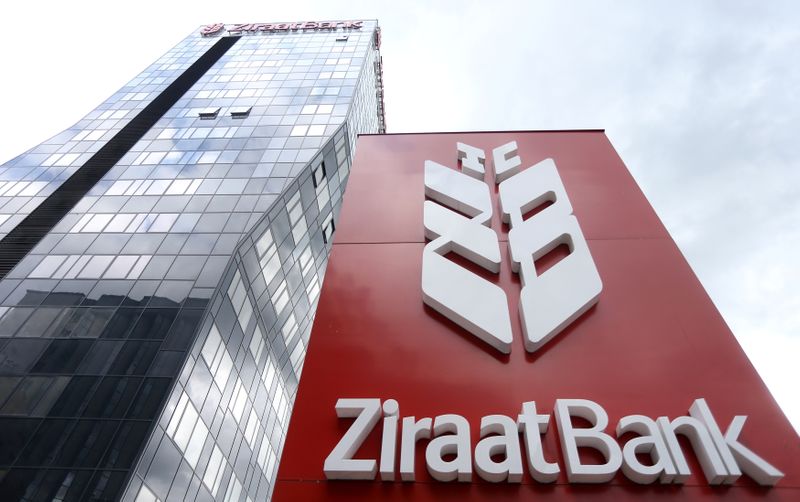Anúncios
In Turkey, the acquisition of real estate is part of a common dream for many families and investors. The economic growth of recent decades, coupled with the modernization of the Turkish financial sector, has made mortgage loans (locally known as Konut Kredisi) a key element for those wishing to buy a house, apartment, or even real estate for commercial use. As the real estate market expanded, traditional and private banks, as well as public institutions and state partnerships, invested in developing different housing loan options, tailored to various profiles and economic realities.
In addition to the residential aspect, many local and foreign investors see Turkey as having significant profitability potential in the real estate sector, which drives the demand for specific financing solutions for larger-scale projects, such as residential complexes or tourist facilities. Banking institutions, in turn, assess the property’s value (through expert reports) and request detailed documentation from the applicant, including income records, property ownership, and possibly additional guarantees.
This article systematically addresses the main features of mortgage loans in Turkey: from the most relevant banks offering this type of credit to options for fixed or variable rates, as well as eligibility criteria, required documentation, and the details of the application process. We will also discuss crucial aspects such as mandatory insurance, additional costs, and the impact of inflation on interest rates. The aim is to provide a comprehensive and practical overview for those planning to finance a property in the country, whether for personal use or as a medium- to long-term investment.
Buying property in Turkey, financed through a mortgage loan, involves a decision-making process that goes beyond simply obtaining money to purchase a home. Understanding the dynamics of the Turkish market—filled with regional particularities, occasional government subsidies, and fluctuations in interest rates—is essential for making a well-informed decision. Often, the quickest loan to obtain is not the most advantageous; likewise, a loan with lower rates might require additional guarantees or shorter terms, resulting in higher monthly payments.
Since it is a long-term commitment (lasting up to two or three decades), the borrower must assess not only the monthly installment but also potential future economic fluctuations, especially if the rate is variable. Moreover, each bank establishes different approval policies and risk criteria, making comparisons and simulations essential. In the upcoming sections, we will present the most relevant Turkish institutions in this segment, explore interest rate formats (fixed or variable), as well as common loan terms and amounts. We will also explain the documentation and application process, so that you can proceed confidently and with clarity when acquiring your dream property.
Banks Offering Mortgage Loans
Several institutions in Turkey offer specific credit lines for purchasing real estate. Among the main ones, we can mention:
° Ziraat Bankası: As a state-owned bank, it offers attractive conditions for homeownership, often with incentive programs.
° Halkbank: Another public bank, subject to government programs that promote access to housing, it may offer extended terms and potential benefits if the property meets specific criteria.
Anúncios
° VakıfBank: Also state-owned, it has mortgage loan options for different profiles, often offering rates below the market average, depending on the risk assessment.
° Türkiye İş Bankası (Isbank): One of the largest private banks, with a variety of mortgage solutions for both new and used properties. It also offers insurance related to the financing.
° Garanti BBVA: Known for its speed in the approval process and potential promotional campaigns with interest rate reductions, especially for properties in partnership with developers.
° Yapı Kredi: Offers flexible options, allowing for lower payments at the beginning and then adjustments later, depending on the established agreement.
° DenizBank: Although more well-known in other sectors, it provides competitive mortgage rates, adhering to the guidelines of the Central Bank.
The choice of bank should consider not only the nominal interest rate but also the opening fees, the existence of mandatory insurance, and the flexibility of payment. It is common for each institution to offer online simulators to allow customers to estimate approximate monthly payments, making comparisons easier.
Fixed or Variable Rates
When taking out a mortgage loan in Turkey, the determination of the interest rate is a crucial point. Generally, there are two main options:
• Fixed Rate: The interest rate remains unchanged throughout the entire loan term or during a predetermined initial period. It offers stability and predictability in the amount of the installments but may be slightly higher than the variable rate at the time of contracting, as the bank protects itself against future economic fluctuations.
• Variable Rate: Indexed to an economic indicator (for example, reference rates set by the Central Bank of Turkey or interbank indices). This means that if macroeconomic conditions change, the rate may increase (raising the installments) or decrease (lowering them). It can be advantageous in scenarios of falling interest rates, but it carries the risk of rising if there is inflation or a sudden shift in monetary policy.
The decision typically depends on the borrower’s risk profile. Those with tighter budgets tend to prefer the fixed rate, which avoids monthly surprises. Meanwhile, those who anticipate a decline in interest rates or feel capable of handling potential installment increases may opt for the variable rate.
Loan Terms and Amounts
1. Amortization Terms
• Long Term (20-30 years): Common for residential mortgages. The longer the term, the lower the monthly installment, but the higher the total cost in interest.
• Medium Term (10-15 years): Suitable for properties of moderate value or for those who wish to pay off the loan more quickly.
• Short Term (up to 5 years): Less common for housing, but may apply to specific situations, such as bridge loans while selling another property.
2. Loan Amounts
• Percentage of Property Value: Typically, Turkish banks finance up to 80% of the appraised property value.
• Down Payment Requirement: The borrower must secure the remaining 20% or more, depending on the risk profile and the bank’s policies.
• Revaluation: If the property appreciates over time, some banks allow for renegotiation of the remaining amount, potentially revising the interest rates.
Required Documentation
To formalize a mortgage loan in Turkey, the applicant must gather:
• Identification Document: Kimlik for Turkish citizens, or passport and residence permit for foreigners.
• Proof of Income: This can include salary receipts, Turkish tax returns (Gelir Vergisi), or bank statements showing stable cash flow.
• Property Ownership Record: In the case of a purchase, present the deed and registration certificate confirming that the property has no liens or legal disputes.
• Valuation Report (Değerleme Raporu): Issued by accredited experts, this determines the market value of the property.
• Proof of Address: A utility bill or official statement confirming the applicant’s current address.
Each bank may also require additional certificates, depending on whether the property is new or used, and whether the financing is full or partial.
Application Process
1. Contact the Bank and Request a Simulation Visit the bank in person or use online channels to submit information such as income, desired loan amount, and property details. The bank will generate an initial simulation.
2. Risk Analysis and Documentation The applicant submits the listed documents (identification, income, property reports). The bank checks the credit history and verifies the compliance of the documents.
3. Property Appraisal An authorized expert evaluates the property, confirming its market value. This serves as the basis for determining the loan amount and the buyer’s down payment percentage.
4. Approval and Final Offer If everything is in order, the bank formalizes the loan offer, specifying the interest rate (fixed or variable), loan term, mandatory insurance, and total cost.
5. Contract Signing and Mortgage Registration Finally, the borrower signs the loan agreement and formalizes the mortgage on the property. The loan amount is then released, usually transferred directly to the property seller.

Requirements for a Mortgage Loan
| Requirement | Description | Example |
|---|---|---|
| Identification (Kimlik/Passport) | Valid official document with photo and Tax Identification Number (TIN) | Valid passport + residence permit |
| Property Valuation Report | Presented by a certified expert who determines the market value | Required to set the financing limit |
| Proof of Income | Demonstrates the ability to pay the installments | Salary receipts, Turkish tax return, etc. |
Key Points
• Identification: Confirms the legality of the applicant and, for foreigners, their residence status.
• Valuation Report: Essential for the bank to determine the financeable percentage. Omission or falsification will prevent credit approval.
• Proof of Income: Used as the basis for calculating the debt-to-income ratio and assessing the viability of the loan.
Mandatory Insurance and Additional Costs
In various mortgage loan cases in Turkey, the bank may condition approval or offer the best rates on mandatory insurance. One of the most common is DASK (Doğal Afet Sigortaları Kurumu), which covers natural disaster risks, especially earthquakes, as Turkey is located in a seismic zone. Additionally, to protect the property and the bank’s interests, a fire insurance may be required, and in some cases, life insurance linked to the loan, ensuring that in the event of the borrower’s death or disability, the loan balance is covered.
These insurances represent additional costs to consider, along with the usual processing fees, mortgage registration expenses, and potential administrative charges. The borrower should carefully read the contract to verify whether such insurances are indeed mandatory or optional and whether they can be contracted with another insurer offering better terms. Including insurance may slightly increase the monthly installment but provides greater security for the family and the bank.
Impact of Inflation and Interest Rates
Inflation in Turkey sometimes reaches considerable peaks, directly impacting how banks set interest rates for mortgage loans. When inflation rises, institutions tend to increase rates to maintain their real return, while in periods of inflation moderation, rates may stabilize or decrease. For the borrower, this creates a challenge: if they opt for a variable rate, the monthly payment may fluctuate, and if the rate is fixed, they risk it being higher than market conditions if inflation drops.
Therefore, it is advisable to monitor macroeconomic indicators and, if possible, seek professional advice on trends. Some borrowers prefer to start with a fixed rate for the first few years and then switch to a variable rate if they anticipate interest rates falling. However, this decision depends on each family’s risk profile: some prioritize cost predictability above all else, while others, with more fluctuating incomes, may benefit from flexibility.
Simulation and Comparison Between Banks
Before finalizing any mortgage loan contract in Turkey, it is advisable to run simulations and compare offers from different banks—both state-owned and private. Fortunately, many institutions provide online simulators, where you can input the property value, desired loan amount, term, and then obtain an estimate of the monthly payment and the associated interest rate. This practice helps potential borrowers discern significant differences that can add up over 10, 20, or 30 years of amortization.
Sometimes, the cost disparity is not just in the interest rate, but also in other fees, such as processing fees, appraisal fees, monthly maintenance fees, or even penalties for early repayment. Therefore, the customer should go beyond the “promotional interest rate” and check whether the promotion applies for the entire period or just for the first few months. Comparison also allows you to see if there are any campaigns that include government subsidies or specific benefits, such as interest-free grace periods.
Planning and Comparison Between Banks
For most people, a mortgage loan represents one of the most important and long-term financial decisions of their life. Therefore, careful planning is essential. The first step is to determine how much can be allocated monthly without compromising other basic needs—food, healthcare, education. Then, it is advisable to estimate potential future income changes, such as a job promotion, but also consider less optimistic scenarios, such as unemployment or interest rate fluctuations if the rate is variable. For those with an additional source of income, it may be feasible to make early payments or even pay off part of the balance at certain times, reducing the total interest.
Another practical tip is to build a pre-savings fund to cover at least six to twelve installments, acting as a safety net against unforeseen events. And, of course, stay informed about the Turkish economy, the central bank’s monetary policy, and the government’s fiscal policies: any significant changes in inflation or economic management may reflect in interest rates and, consequently, the monthly payment amount.
Summary of Benefits
- Variety of Offers: State-owned and private banks competing, creating competitive conditions.
- Option for Fixed or Variable Rates, tailored to the borrower’s profile.
- Long Terms (up to 30 years), allowing for lower monthly payments.
- Transfer and Refinancing: Many banks accept mortgage transfers, offering better conditions.
- Government Subsidies in Specific Cases (first home, agricultural projects, or priority regions).
- Associated Insurance that protects the family in case of unforeseen events.
- Online Tools to simulate and compare offers.
- Flexibility in Terms (e.g., initial grace period, currency indexing, etc.).
FREQUENTLY ASKED QUESTIONS (FAQs)
1. Is it possible for a foreigner to obtain a mortgage loan in Turkey without permanent residence? Usually, yes, but the process may require additional guarantees and the selection of institutions that accept non-resident clients. Terms and conditions may vary.
2. How do early repayment fees work? Some banks charge penalties for repaying the capital before the agreed term. Check the contract for the percentage charged and if there are any limits or periods that are exempt.
3. Is DASK insurance always mandatory for a home loan? Yes, to cover earthquake risks and protect the property and the bank’s investment. It may increase the monthly cost.
4. Can I switch from a fixed rate to a variable rate in the middle of the contract? It depends. Some banks allow for renegotiation of the contract but may impose administrative fees or require a reassessment of market conditions.
5. Is it beneficial to use a consultant or credit broker in Turkey? In many cases, yes, especially for those who are not familiar with the language or local bureaucracy. A consultant can expedite the process and provide comparisons between banks.
CONCLUSION
In summary, obtaining a mortgage loan in Turkey is an important route for those looking to realize the dream of owning a home or investing in the real estate market, benefiting from long terms and, at times, competitive rates. The Turkish banking sector, composed of state-owned, private, and foreign-partnered institutions, offers a variety of products that cater to everything from first-time homeownership to purchasing apartments for short-term rentals or commercial buildings. However, it is crucial for the borrower to plan each step carefully, starting with bank simulations and analyzing the interest rates (whether fixed or variable) to prevent potential fluctuations that could increase the monthly payment.
Additionally, the existence of government subsidy or incentive programs can help reduce costs or improve payment conditions, especially for those who qualify under state-defined categories (e.g., social housing, investments in rural areas, etc.). However, caution is also required regarding mandatory insurances, particularly DASK for protection against seismic risks, and the additional fees that may arise throughout the contract. At the same time, monitoring inflation rates and the Central Bank’s guidelines is essential to understand how interest rates may evolve, should a variable rate option be chosen.
The decision to take out a mortgage should always be accompanied by a sound financial plan capable of accommodating the monthly payment without compromising other obligations or leading to over-indebtedness. Thus, with an informed choice—by simulating, comparing offers from different banks, and researching possible subsidies—the borrower can find conditions that balance a favorable interest rate, an affordable installment, and, in many cases, protections that ensure peace of mind throughout the entire loan term.


